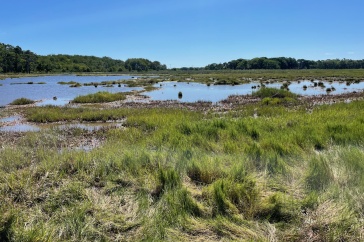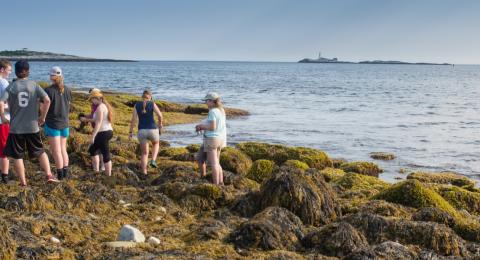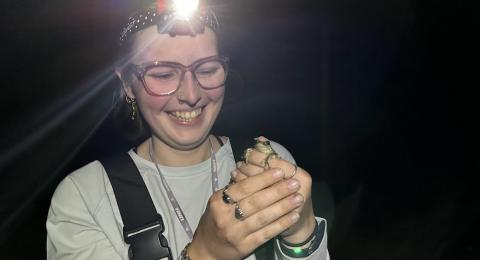Biological Sciences
Explore the Department of Biological Sciences
Why do complex systems, from cells to populations, organize themselves and behave the way they do? That is the core question the biological sciences seek to answer.
In the Department of Biological Sciences, your search for answers will take you beyond the textbook and the classroom.
You can actively participate in lab- and field-based research in state-of-the-art facilities both on and off campus, as well as take advantage of the region’s varied natural habitats. New Hampshire boasts a stretch of the Atlantic coastline, alpine habitats in the White Mountains, forests, fields, and more than 1000 lakes and associated wetlands. You can take advantage of our extensive network of research and teaching facilities, including the Jackson Estuarine Laboratory, the Shoals Marine Laboratory, and farms and greenhouses that are part of the New Hampshire Agricultural Experiment Station.
You can work side-by-side with faculty on research projects that have major impacts on their fields, and apply for grants to fund your own projects.
You will find a wealth of resources relating to your work and your education, because we know that the most powerful learning happens through doing, seeing and experiencing.
You will develop wide-ranging expertise leading you to a great career in (or beyond) biology: 92% of our undergraduate alumni are either employed or are pursuing graduate education. Our graduate students develop research and professional skills that lead to employment and success in diverse areas across industry, government, public service and academia.
Prepare yourself for success. Go beyond!
Programs of Study
Minors
Undergraduate
Recent Stories

COLSA Faculty Spotlight: Adam Brockett

UNH Scientists Helping Address Threats to a Critical Wildlife Refuge
UNH Scientists Helping Address Threats to a Critical Wildlife Refuge
Coastal erosion, habitat loss are placing valuable salt marshes and estuaries for migratory birds at risk
Article
Phytoplankton Monitoring in Gulf of Maine as a Signal of Climate Change Impacts
Phytoplankton Monitoring in Gulf of Maine as a Signal of Climate Change Impacts
UNH research tracks the role of microscopic algae in sustaining marine biodiversity and ecosystems
ArticleUpcoming Events
There are no items to display.
View Calendar




